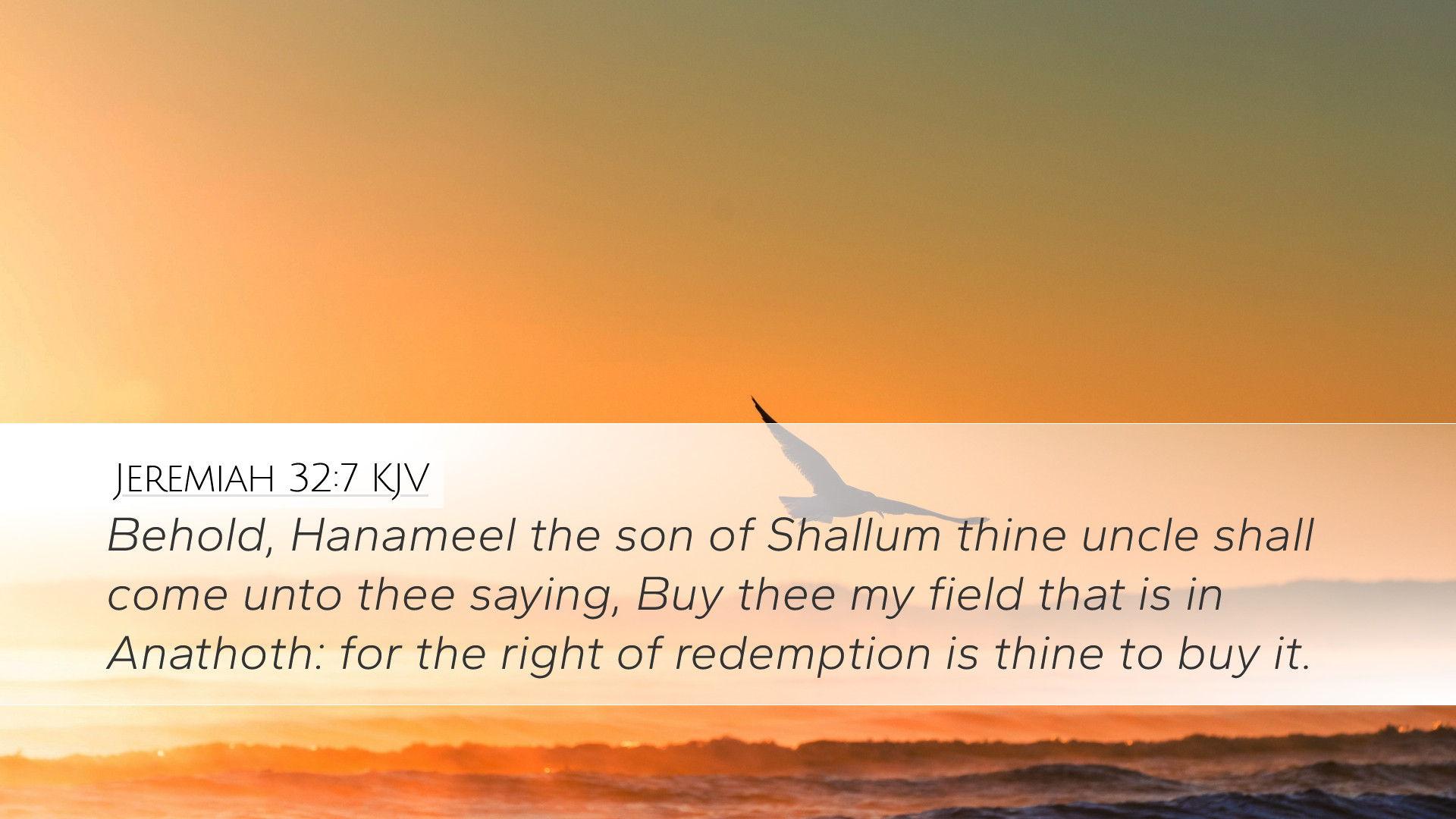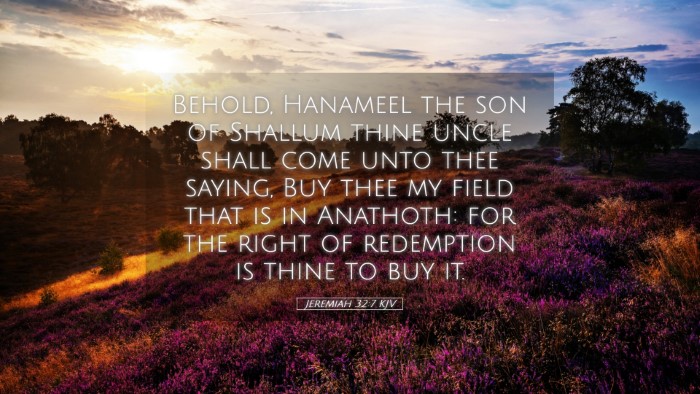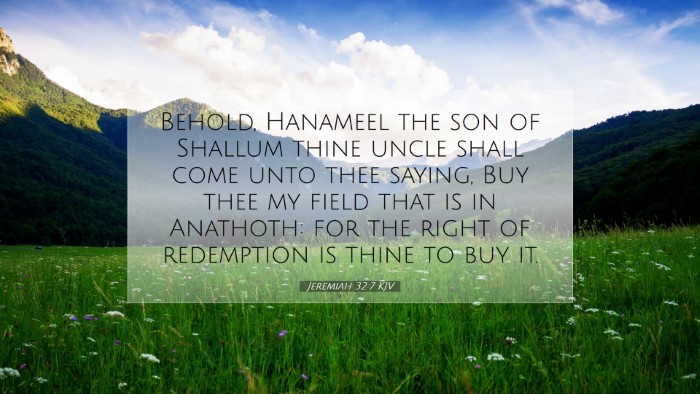Commentary on Jeremiah 32:7
Bible Verse: “Behold, Hanameel the son of Shallum your uncle will come to you, saying, ‘Buy my field that is at Anathoth, for the right of redemption is yours to buy it.’” (Jeremiah 32:7, ESV)
Introduction
This verse encapsulates a significant moment in the prophetic ministry of Jeremiah, emphasizing themes of redemption, hope, and divine assurance amidst impending judgment. In exploring this verse, insights from Matthew Henry, Albert Barnes, and Adam Clarke will demonstrate its multifaceted implications for believers, especially in the context of God’s promises and the unfolding of His providential plans.
Contextual Overview
To fully grasp the weight of Jeremiah 32:7, one must consider the broader narrative surrounding Jeremiah's prophetic ministry during the tumultuous period of Judah’s decline. The nation faced imminent invasion and exile due to their disobedience to God, making the command to purchase a field particularly poignant.
The Historical Context
Jeremiah received this command while he was imprisoned by King Zedekiah, which amplifies the profound nature of faith Jeremiah demonstrated. The land was not only a physical asset but also deeply symbolic of God’s continued presence and promises to His people.
Theological Insights
Divine Assurance
Matthew Henry highlights that the purchase signifies God’s reassurance to Jeremiah. Despite the bleak circumstances, God had a plan for restoration: “This act of buying the field signifies that God’s mercies would ultimately prevail, and the people would return and inherit the land once again.”
Symbol of Redemption
Albert Barnes elaborates on the notion of redemption in this verse, explaining that the right of redemption is a symbolic act of reclaiming what belongs to God. The act of buying the field represents the hope of restoration, not merely a transaction but a profound statement of faith in God’s promises:
- Faith in God’s promises: Jeremiah's obedience illustrates his trust in God despite dire circumstances.
- Hope against despair: This purchase reflects the belief that God will redeem His people.
Emphasizing Land Ownership
Adam Clarke provides further insight into the significance of land ownership, suggesting that it reflects God’s original covenant with Israel regarding the land. He notes, “Jeremiah buying the field is not just about land; it signifies the permanence of God’s covenant with His people, even through exile.”
Practical Applications
Faith Amidst Adversity
For pastors and theologians, this verse serves as a poignant reminder that faith does not wane in adversity. Just as Jeremiah acted upon God's command, believers are called to trust God's promises even when the situation appears bleak.
Anticipating Redemption
Students of the Word can draw parallels between this act of buying a field and the overarching biblical narrative of redemption through Christ. Just as Jeremiah made a tangible investment in the future of Israel, so too does Christ make an eternal investment in redeeming humanity.
Conclusion
Jeremiah 32:7 richly conveys layers of meaning that speak to the nature of divine transactions, the hope of restoration, and the persistent nature of God's promises. This verse encourages believers across generations to remain steadfast in faith and expectation of God's fulfillment of His covenant promises.
Takeaway: Though circumstances may suggest despair, Jeremiah 32:7 reassures us that God's redemptive plans are far greater, inviting us to trust and act in faith, believing in the promise of restoration and hope.


